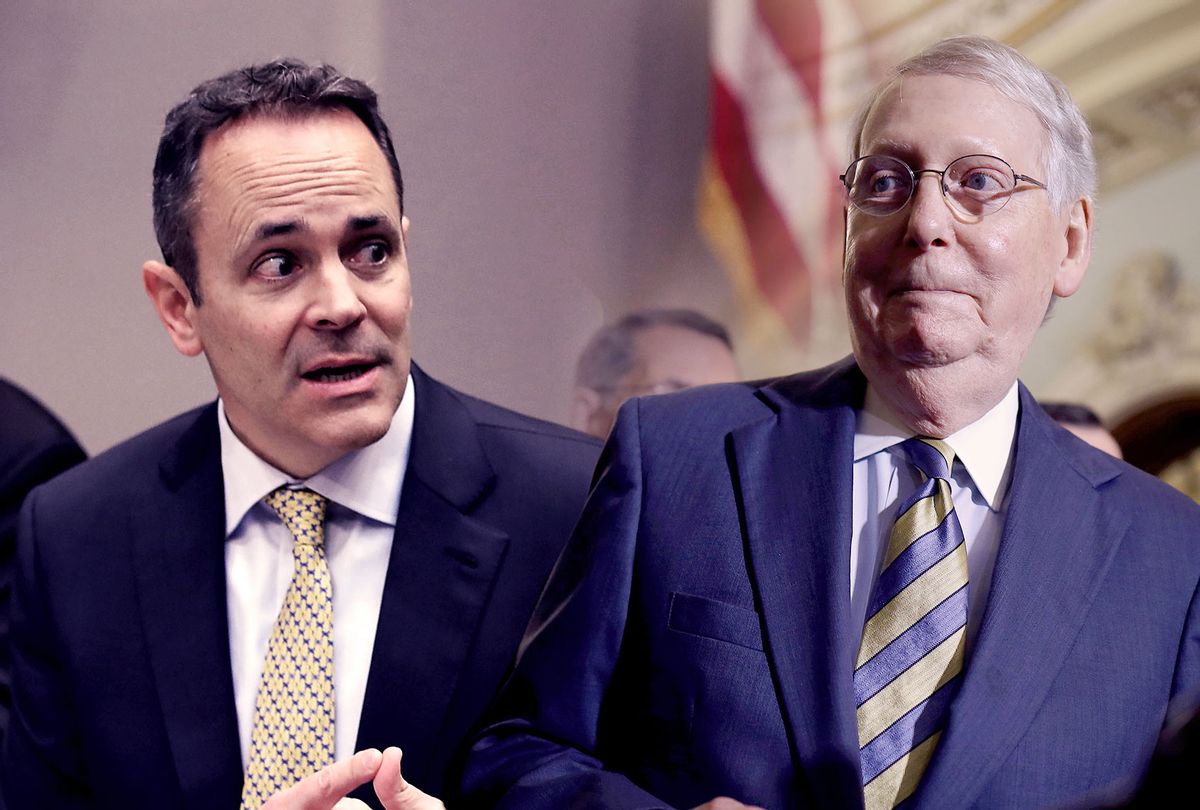Citing unspecified “irregularities,” Kentucky’s incumbent Republican Gov. Matt Bevin refused to concede after Democratic Attorney General Andy Beshear was declared the apparent winner in the race to be the state's top executive.
"This is a close, close race. We are not conceding this race by any stretch,” Bevin told a crowd of supporters although he was shown down by more than 5,100 votes with 100 percent of precincts counted, according to the Louisville Courier Journal.
Nonetheless, Kentucky Secretary of State Alison Lundergan Grimes, a Democrat, declared Beshear the victor Tuesday night.
Bevin defended his refusal to claiming that there had been “irregularities,” although he did not offer any specifics. Under Kentucky law, he can ask the secretary of state for a recanvass of the vote, where vote totals are reviewed by each county clerk. Bevin could next request a formal recount of all the votes, although he would have to pay for it.
While it is certainly a bad sign for an incumbent Repubclian governor to lose a major election in a state that is usually a stronghold for the party, Beshear’s apparent victory does not necessarily suggest vulnerability for Republicans in the state, who picked up statewide offices in other down ballot races. Although Senate Majority Leader Mitch McConnell is up for re-election in Kentucky next year, he is not likely to oppose a candidate with Beshear’s name recognition. (His father, who was the last Democrat to govern Kentucky, served two terms in office.) Similarly, Bevin courted a number of controversies as governor, which shook public confidence in his administration. Polls consistently placed him among the least-popular governors in the country.
One of those policies was a pension reform bill, which would have significantly reduced benefits for teachers throughout the state. Teachers responded by holding “sick-outs” and storming the state capitol in protest. During that April rally, teachers also chanted “remember in November,” indicating that Bevin’s controversial education policies and statements could come back to haunt him.
At one point, Bevin claimed the protesters were “absolute frauds” and accused them of “not looking out for the best interests of the teachers. They are looking out for the best interest of themselves.” On another, he complained about students being kept home from school on cold days, telling a radio host that “we’re getting soft” and arguing that “it does concern me a little bit that in America, on this and any number of other fronts, we’re sending messages to our young people that if life is hard, you can curl up in the fetal position somewhere in a warm place and just wait 'til it stops being hard. And that just isn’t reality.” Those remarks prompted weatherman Al Roker to refer to Bevin as a “nitwit.”
Bevin’s loss will also likely end his attempt to add a work requirement for Medicaid beneficiaries, a move so controversial that the governor wound up suing his own constituents to defend his policy and threatened to pull Kentucky out of the Affordable Care Act if the work requirements were struck down in court. If Bevin succeeded, roughly 95,000 Kentuckians would have been dropped from the Medicaid rolls.
McConnell also scored a victory of sorts on Tuesday night when his former aide, Daniel Cameron, was elected to be the state’s next attorney general. Unlike Bevin, who was merely endorsed by the president, McConnell in his leadership role will wield influence over Republican senators as they prepare to hold a trial if the president is impeached. McConnell has already made it clear that he does not want this to end with Trump being removed from office. If he is perceived as “saving” the president, Kentuckians could reward him. Kentucky is a deeply conservative state that voted for Trump by nearly 30 points in the 2016 presidential election.
Yet Tuesday's results also show potentially signs for Republican candidates who align themselves with Trump over the issues that matter to local voters. The president himself rallied on Bevin’s behalf on the day before the election, telling an enthusiastic crowd that if Bevin lost it would send "a really bad message to the rest of the country," and "you can't let that happen to me."



Shares